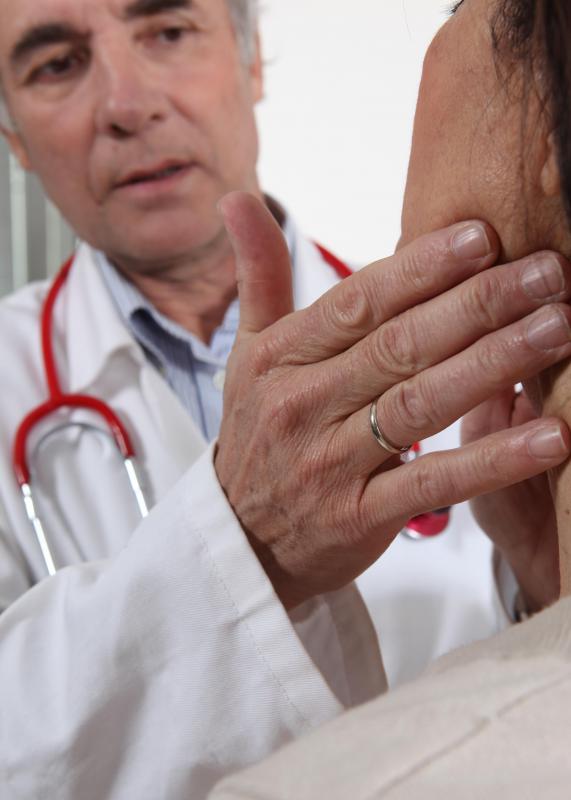At WiseGEEK, we're committed to delivering accurate, trustworthy information. Our expert-authored content is rigorously fact-checked and sourced from credible authorities. Discover how we uphold the highest standards in providing you with reliable knowledge.
What is Radical Surgery?
The term radical surgery is used to describe a procedure which removes a cancerous or diseased organ or mass along with the blood supply and sometimes surrounding lymph nodes or glands. It can be used in the removal of almost any type of cancer, although the effectiveness and safety of performing such a procedure is debated among researchers and surgeons. In most cases, a considerable amount of healthy tissue is removed along with the tumor.
Many scientists are against the routine use of radical surgery for the treatment of disease. This is primarily because there is a higher risk of complications and risks associated with radical surgeries when compared to simpler, more conventional methods. Generally, much of the tissue removed is not diseased or cancerous, and not much is understood about the way in which cancer spread to surrounding tissues. This means that any benefits of removing non-diseased tissue, if any, are not fully determined or recognized.

In the study of radical surgery, there have been conflicting results. Some research has shown that patients who underwent a radical surgery when compared to those who had more simple and traditional varieties had a shorter survival period and lower cure rate. Others have indicated that radical procedures help to increase survival rates by providing less tissue for the cancer to grow into should it return. More studies are needed to determine the overall benefit-to-risk ratio of radical procedures.

Overall, post-operative complications are higher with radical surgery, and this is a big drawback for patients. There may also be a greater risk for infection. For this reason, many doctors recommend avoiding radical varieties altogether unless cancer or another disease has already spread into the surrounding blood or nodes, and even then, only the affected ones should be removed.

The reasons why radical surgery is more risky is due to its more complicated nature. In general, the greater the complexity in a procedure, the more chances there are for something to go wrong. Despite this, there are some doctors who insist on performing radical procedures. Until more research is done to either prove or disprove the inherent risks and benefits when compared to more simple surgery methods, this practice may not change.
Patients who are set to undergo a radical surgery should become as educated as possible in the exact procedure being done, the recovery process, and the potential complications. He or she should speak with the surgeon and discuss the perceived benefits of performing a more complex procedure versus a simpler method, and voice any concerns or preferences ahead of time. It is up to each individual to take responsibility for his or her own care to avoid unnecessary risks.
AS FEATURED ON:
AS FEATURED ON:













Discuss this Article
Post your comments